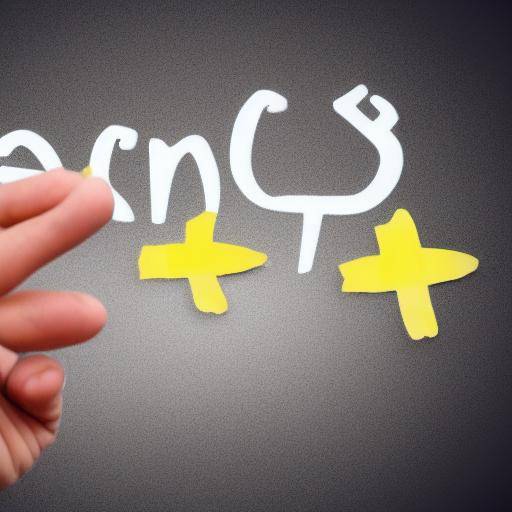
Introduction
Labour exhaustion is a growing problem in the modern working world. Many people are overwhelmed by the stress and demands of work, which can seriously affect their mental well-being. In this article, we will explore how meditation, a millennial practice, can be an effective tool to prevent and manage labor exhaustion. You will discover the benefits of meditation, its application in the working environment and how it can contribute to greater mental well-being.
History and Background
Meditation is an ancestral practice dating back to thousands of years. Its origins are found in ancient Eastern traditions, such as Buddhism and Hinduism. Throughout history, meditation has played a crucial role in spiritual development and the search for inner peace. Over time, it has gained popularity around the world, being adopted by various cultures and adapted to different contexts.
In the 1960s, meditation experienced a resurgence in the West with the arrival of teachers such as Maharishi Mahesh Yogi, who introduced Transcendental Meditation. This practice was quickly popularized, taking meditation to a wider audience and highlighting its benefits for mental and emotional health. Since then, meditation has been the subject of numerous scientific studies that have validated its positive effects.
Analysis in Deep
Meditation has shown a wide range of mental health benefits. Numerous scientific studies support their positive effects on stress reduction, anxiety and depression. By practicing meditation on a regular basis, people can improve their ability to deal with stressful situations, increase their mental clarity and cultivate a sense of calm and well-being.
Meditation practice helps to reduce cortisol levels, stress hormone, in the body. This not only improves mood, but also strengthens the immune system and improves sleep quality. In addition, meditation promotes emotional self-regulation, allowing people to respond more effectively to labour challenges.
Comprehensive review
In the working environment, meditation can be an invaluable tool to prevent work exhaustion. By incorporating meditation practices into the daily routine, workers can improve their ability to manage labor stress, maintain concentration and promote a state of emotional balance. In addition, meditation can foster creativity, clear thinking and conscious decision-making, which contributes to more effective work performance.
Companies that have implemented meditation programs have significant benefits, including a reduction in absenteeism, increased labor satisfaction and a better organizational climate. Meditation is becoming a standard practice in many organizations seeking to improve the well-being of their employees.
Comparative analysis
Comparatively, labour exhaustion is an increasingly relevant problem in today's society. Excessive labour demands, constant pressure and lack of balance between work and personal life contribute to their prevalence. Meditation, on the other hand, offers a holistic approach to addressing mental well-being, acting as a crucial counterweight to counteract the harmful effects of labour exhaustion.
Compared to other stress management techniques, such as physical exercise or therapy, meditation stands out for its accessibility and ease of practice. It does not require special equipment or facilities and can be done at any time and place, making it ideal for the working environment.
Practical Tips and Accessible Tips
If you face work exhaustion, consider integrating meditation into your daily routine. Here are some practical tips:
- Start with short sessions: Start with sessions of 5 to 10 minutes of daily meditation, focused on breathing and full attention.
- Find a quiet space: Find a quiet and comfortable place in your home or at work where you can meditate without interruption.
- Sets a routine: Practice meditation at the same time every day to create a consistent habit.
- Use meditation applications: There are numerous applications available that offer guided meditations and tools for beginners.
- Keep an opening attitude: Meditation requires patience and perseverance. Don't get frustrated if you don't see immediate results; the benefits accumulate over time.
Industry Perspectives and Expert Reviews
Experts agree that meditation can play a crucial role in preventing labour exhaustion. As more companies recognize the importance of the well-being of their employees, meditation is increasingly being integrated into the working environments. Well-being programs that include meditation practices are proving to be beneficial to both employees and organizations as a whole.
Dr. Jon Kabat-Zinn, founder of the Full Care Stress Reduction Program (MBSR), highlighted that "meditation is an effective way to improve mental health and reduce stress at work. It promotes greater clarity and creativity, which can significantly improve job performance. "
Case Studies and Real Life Applications
Several case studies have demonstrated the positive impacts of meditation on real working environments. Companies such as Google, Aetna and General Mills have implemented meditation programs and have observed a decrease in labor exhaustion, increased labor satisfaction and improved productivity and sense of community among employees. These examples illustrate how meditation can be a powerful tool to promote a healthy and sustainable working environment.
For example, Aetna, one of the largest health insurance companies in the USA. The U.S. introduced meditation programs for its employees and reported a 28% decrease in perceived stress levels and a 20% improvement in sleep quality. In addition, participating employees showed an increase in estimated productivity in 62 additional minutes of productive work per week.
Future Trends and Predictions
As the focus on mental well-being in the workplace continues to grow, meditation is likely to play an even more significant role in preventing and managing labour exhaustion. Future trends suggest a greater integration of meditation practices in the working environments, as well as a more holistic approach to employee welfare.
Technology is expected to play a key role in this evolution, with the development of custom meditation applications and platforms that facilitate practice in the workplace. In addition, companies can start offering training and resources to teach employees how to integrate meditation into their daily routine.
Conclusion
In short, meditation offers a powerful tool to prevent and manage labor exhaustion. Its benefits demonstrated in stress reduction, the promotion of mental clarity and the promotion of an atmosphere of calm and emotional balance place it as an invaluable practice in the modern working environment. By adopting meditation as an integral part of daily routine, individuals and organizations can cultivate a more positive, sustainable and healthy working environment.
Frequently asked questions
Question 1: What are the common signs of labor exhaustion?
Work exhaustion can manifest in various forms, including constant fatigue, irritability, lack of motivation and difficulty concentrating. It is important to be aware of these signs both in oneself and in the coworkers.
Question 2: How often should meditation be practiced to gain benefits in the working environment?
Even regular short meditation sessions can have positive effects on the management of labour stress. It is recommended to start with just a few minutes a day and progress as you feel more comfortable with practice.
Question 3: How can a company promote meditation in the working environment?
Businesses can promote meditation by offering well-being programs that include guided sessions, access to quiet spaces for meditation and support for employees to integrate this practice into their daily routine.
Question 4: Is meditation only for spiritual or religious people?
Meditation is a secular practice that can be adopted by anyone, regardless of their religious beliefs. Their benefits are accessible to all, regardless of their spiritual background.
Question 5: Is special training needed to practice meditation in the working environment?
While there are instructors and training resources in meditation, the basic practice of meditation does not require specialized training. Most people can learn to meditate using online resources or applications.
Question 6: Can meditation improve interpersonal relationships in the working environment?
Meditation can improve people's ability to manage stress and regulate their emotions, which can have a positive impact on working relationships. By promoting mental clarity and empathy, meditation can contribute to a more harmonious and collaborative working environment.






















































